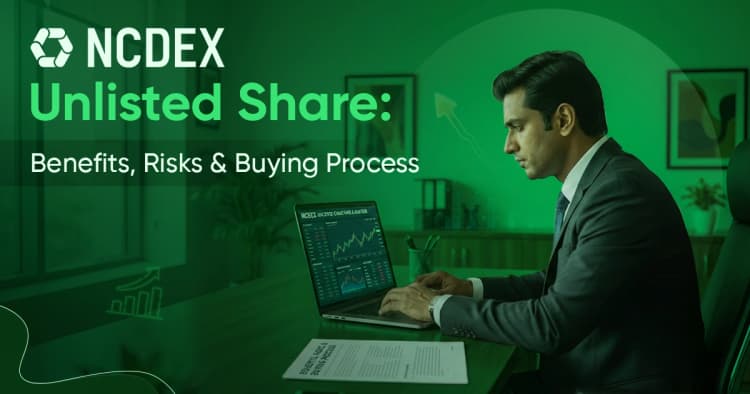Warren Buffett’s Toll Road investment philosophy refers to companies that possess durable competitive advantages, often referred to as economic moats, allowing them to “charge a toll” on every transaction within a system that users cannot easily avoid. These businesses exhibit characteristics such as market dominance, pricing power, recurring revenues, high return on capital, and resistance to disruption.
Buffett’s ideal “toll road” company thrives by being essential to the functioning of a broader system, so integral that users must use its services, often repeatedly, whether they realize it or not. In this context, the National Stock Exchange of India (NSE), based on its FY25 financials and strategic positioning, exemplifies many of these core traits. [NSE’s FY25 Results Analysis, Click here]
NSE as a Toll Road: Mapping Buffett’s Framework to FY25 Realities
Dominant Market Position: Monopoly-Like Economics
In FY25, the NSE held an unparalleled market share in the Indian capital markets:
This dominance is not simply statistical; it is systemic. The NSE is the gateway for capital allocation in India. Much like a toll road that every driver must use to get from point A to B, every significant financial transaction in India either passes through or is influenced by the NSE. Its network effects are self-reinforcing, greater volume begets liquidity, liquidity attracts participants, and participants bring more volume.
This scale insulates the NSE from competitors like BSE and MSEI, creating an economic moat around its core operations, precisely the type of market insulation Buffett cherishes in his long-term holdings. [Compare NSE vs BSE, here!]
Recurring Revenue Model: The Toll Booth in Action
Buffett favors businesses with predictable, recurring income streams, and FY25 data reveals that the NSE fits this archetype perfectly. Of the total ₹19,177 crore in revenue:
₹13,623 crore (71%) came from transaction charges, fees that are automatically collected every time investors buy or sell securities.
Every trade that happens on the NSE is like a vehicle passing through a toll booth. The exchange charges a fee whether markets go up or down, which aligns perfectly with Buffett’s view of investing in companies that make money in every economic environment.
Importantly, these are not one-time revenues but ongoing charges tied to trading volumes, which are driven by structural tailwinds such as rising retail participation, increasing financial awareness, and expanding economic activity in India. [Read about NSE’s IPO Roadmap]
High Profitability and Operating Leverage
Buffett repeatedly emphasizes the value of businesses with high margins, low incremental capital needs, and strong operating leverage. FY25 performance illustrates that the NSE meets all these criteria:
EBITDA: ₹12,647 crore (up 28% YoY)
Net Profit: ₹12,188 crore (up 47% YoY)
EPS: ₹49.24, up from ₹33.56
Operating Margin: ~71%
These numbers signify a company that not only earns substantial revenue but converts it efficiently into profit. The rising EPS and generous dividend (₹35/share, including a special ₹11.46 dividend) show strong alignment with shareholder value creation, a key Buffett metric.
The bonus share issue (4:1) further enhances shareholder engagement and liquidity, reinforcing investor confidence.
Essential Infrastructure: The Digital Toll Road of Modern India
Buffett has often invested in real-world infrastructure (like BNSF Railway and energy utilities) because such assets are mission-critical and impossible to replicate easily. The NSE plays a parallel role in India’s digital financial infrastructure.
FY25 highlights include:
- T+1 and T+0 settlement systems: Enabling near-instantaneous trade execution.
- 500,000+ order processing per second: Enabled by ₹304 crore investment in tech upgrades.
- ₹13.8 lakh crore capital raised via IPOs and bond issuances.
- 242 IPOs, including many SMEs and startups.
- ₹45,499 crore paid to the exchequer (taxes, fees, etc.).
Expanding Moat and Regulatory Endorsement
A core tenet of Buffett’s philosophy is a widening moat over time, often supported by regulatory frameworks that entrench a firm’s position. NSE operates under SEBI’s rigorous oversight, ensuring:
- Investor protection via a ₹2,459 crore IPF (Investor Protection Fund).
- Fair play and compliance through transparent governance.
- Retail-friendly reforms to expand participation and improve literacy.
- 22 crore total investor accounts.
- 11.3 crore unique investors, covering 99.9% of Indian PIN codes.
- 14,670 awareness programs with over 800,000 participants.
Diversification and Resilience: Beyond Transaction Revenue
Buffett warns against firms overexposed to volatile income streams. While NSE does depend on trading volumes, it is rapidly diversifying into stable, non-transactional revenue segments:
- Listing Services: +41% YoY
- Data Subscription & Licensing: +20–23% YoY
- Clearing and Settlement: +138% YoY
- Investment Income: +18% YoY
- Other Operating Income: +46% YoY
This flexibility and multi-source income generation reflect the kind of resilience Buffett prizes.
From its monopoly status, transaction-linked cash flows, deep moat, and technological infrastructure, to its high margins, resilient earnings, and regulatory backing, the National Stock Exchange (NSE) mirrors the very essence of Warren Buffett’s toll road investing philosophy.
Its FY25 performance is not just a showcase of short-term growth; it is a demonstration of structural strength, strategic depth, and systemic indispensability. As India’s economy grows and financializes, NSE will remain at the center of capital formation, much like a toll bridge that charges every vehicle passing through the economy’s financial arteries.



